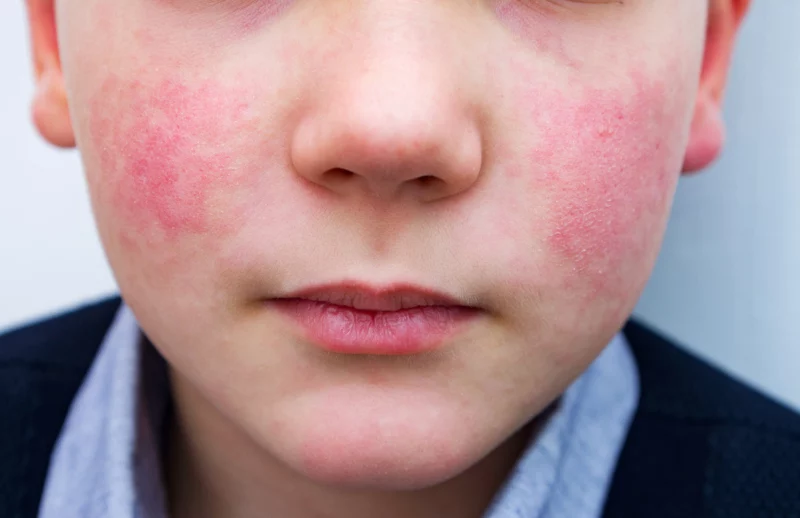 rash“>
rash“>View Larger / A child showing a “slapped cheek” rash (image credit: CDC)
This summer has seen an alarming rise in cases of a viral respiratory illness that predominantly affects children, especially those in school settings, across Europe and the United States. According to a recent health alert from the Centers for Disease Control and Prevention (CDC), this increase poses serious risks to vulnerable groups, such as pregnant individuals.
The virus responsible for this outbreak is known as parvovirus B19 or B19V. It is typically transmitted through airborne droplets and commonly leads to mild illness characterized by two distinct stages among affected children. The initial stage includes symptoms similar to influenza, such as fever, fatigue, body aches, coughs, sore throats, headaches, and joint discomfort. As the illness progresses into its second stage, patients often develop a distinctive “slapped cheek” rash—a condition also referred to as Fifth Disease or Erythema Infectiosum. Research indicates that approximately 50% of individuals have encountered the virus by age 20; this percentage increases to around 70% by age 40.
However, for people with weakened immune systems—those who are expecting children—and individuals suffering from specific health issues like sickle cell disease—the consequences of contracting B19V can be severe. Complications may include intense anemia and conditions such as myocarditis (inflammation of the heart), hepatitis (liver inflammation), or even encephalitis (brain inflammation). In pregnant women specifically, infection with this virus can lead to adverse outcomes for their fetus including miscarriage and other significant complications.
Read more details in further sections | Comments






